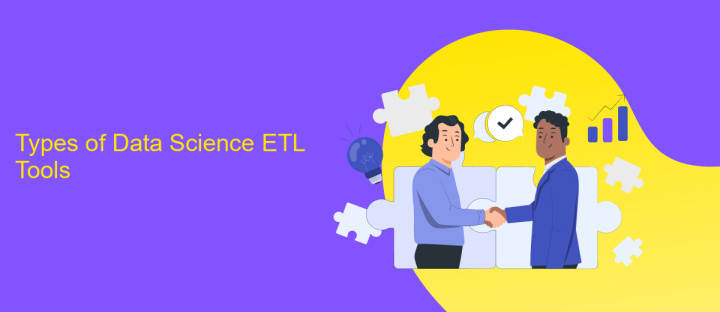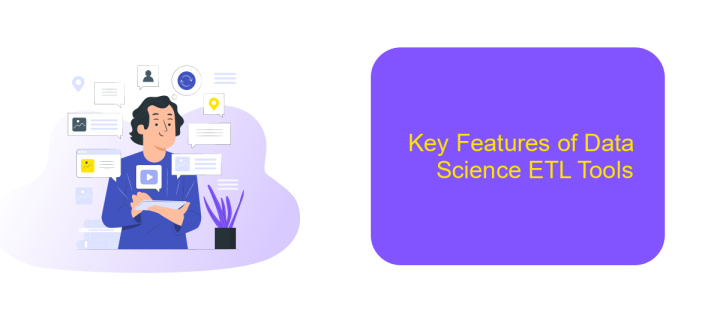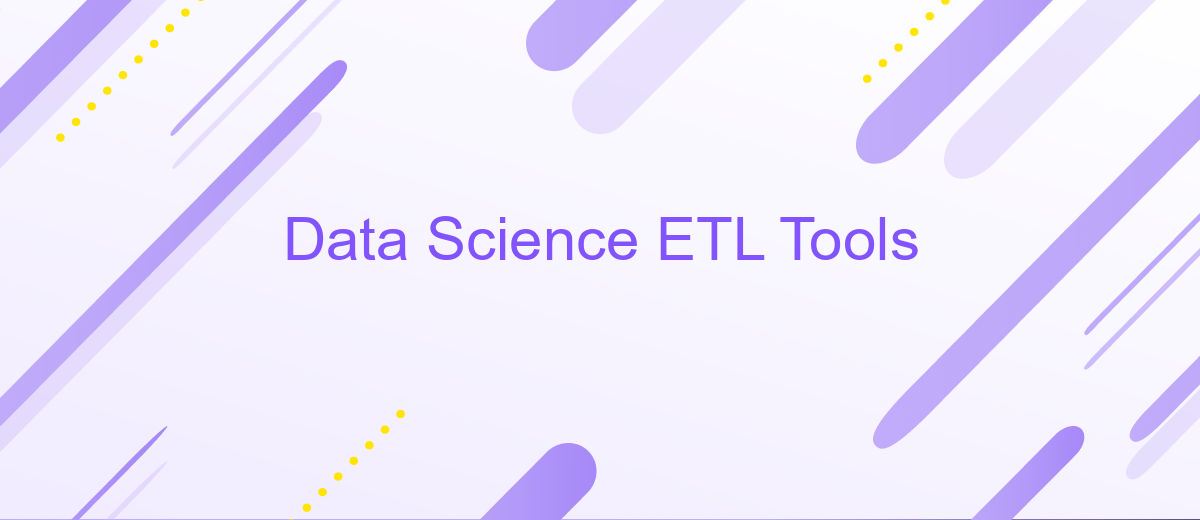Data Science ETL Tools
In the rapidly evolving field of data science, ETL (Extract, Transform, Load) tools play a pivotal role in managing and processing vast amounts of data. These tools streamline the workflow by efficiently extracting data from various sources, transforming it into a usable format, and loading it into data warehouses. This article explores the top ETL tools that are essential for modern data scientists.
Introduction to Data Science ETL Tools
Data Science ETL (Extract, Transform, Load) tools are essential for processing and managing large datasets. These tools help data scientists and analysts efficiently extract data from various sources, transform it into a usable format, and load it into data storage systems. The primary goal is to streamline the data workflow, ensuring that data is accurate, consistent, and ready for analysis.
- Extraction: Collecting data from multiple sources such as databases, APIs, and flat files.
- Transformation: Cleaning, normalizing, and enriching data to meet specific requirements.
- Loading: Storing the transformed data into a data warehouse or another storage solution.
One of the services that facilitate seamless integration and automation of ETL processes is ApiX-Drive. This platform allows users to connect various applications and automate data workflows without the need for coding. By leveraging tools like ApiX-Drive, organizations can save time, reduce errors, and ensure that their data pipelines are robust and scalable, ultimately enhancing their data analysis capabilities.
Types of Data Science ETL Tools

Data Science ETL tools can be broadly categorized into three types: open-source tools, cloud-based tools, and commercial software. Open-source tools like Apache NiFi and Talend are popular for their flexibility and cost-effectiveness. They allow users to customize workflows and integrate various data sources without significant investment. These tools are ideal for organizations with technical expertise and the need for tailored solutions.
Cloud-based ETL tools such as Google Dataflow and Amazon Glue offer scalability and ease of use. These tools are designed to handle large volumes of data and provide seamless integration with other cloud services. Commercial software like Informatica and Microsoft SSIS provides robust features and enterprise-level support. For those seeking to automate data integration without extensive coding, services like ApiX-Drive can be highly beneficial. ApiX-Drive simplifies the process of connecting different applications and automating data workflows, making it an excellent choice for businesses looking to streamline their ETL processes.
Benefits of Using Data Science ETL Tools

Data Science ETL tools play a crucial role in managing and processing large datasets, making them indispensable for any data-driven organization. These tools streamline the extraction, transformation, and loading of data, ensuring that data is accurate, consistent, and ready for analysis.
- Efficiency: Automating data workflows saves time and reduces manual errors, allowing data scientists to focus on analysis rather than data preparation.
- Scalability: ETL tools can handle increasing volumes of data, ensuring that your data infrastructure grows with your business needs.
- Integration: Tools like ApiX-Drive facilitate seamless integration with various data sources and platforms, simplifying the process of consolidating data from multiple channels.
- Data Quality: These tools often come with built-in data validation and cleansing features, improving the overall quality of your data.
- Cost-Effectiveness: By automating repetitive tasks, ETL tools can significantly reduce operational costs.
Incorporating Data Science ETL tools into your data management strategy can lead to more efficient processes, better data quality, and ultimately, more insightful analytics. With services like ApiX-Drive, integrating various data sources becomes a seamless experience, further enhancing the value these tools bring to your organization.
Key Features of Data Science ETL Tools

Data Science ETL tools are essential for efficiently managing and processing large volumes of data. These tools streamline the extraction, transformation, and loading of data, ensuring that data scientists can focus on analysis rather than data wrangling. Key features of these tools significantly enhance their functionality and usability.
One of the primary features is the ability to handle diverse data sources. ETL tools must support various data formats and databases, making it easier to integrate information from multiple origins. Additionally, scalability is crucial as it allows the tools to manage growing data volumes without compromising performance.
- Data integration from multiple sources
- Scalability and performance optimization
- Data transformation capabilities
- Automation of ETL processes
- Real-time data processing
Tools like ApiX-Drive facilitate the integration process by offering seamless connectivity between different applications and data sources. This service automates data transfers, saving time and reducing errors. By leveraging such features, Data Science ETL tools enhance efficiency and ensure high-quality data management.
- Automate the work of an online store or landing
- Empower through integration
- Don't spend money on programmers and integrators
- Save time by automating routine tasks
Case Studies and Examples of Data Science ETL Tools
One notable case study involving Data Science ETL tools is the implementation of Apache NiFi by a large retail company. The company needed to streamline its data ingestion process from multiple sources, including sales systems, customer feedback, and supply chain databases. Using Apache NiFi, they were able to automate the data flow, ensuring real-time data availability for analytics and business intelligence. This led to improved decision-making, faster response times to market changes, and enhanced customer satisfaction.
Another example is a healthcare organization that leveraged Talend to integrate patient data from various electronic health records (EHR) systems. By using Talend's ETL capabilities, the organization could create a unified data repository, enhancing the accuracy of patient diagnoses and treatment plans. Additionally, ApiX-Drive was utilized to facilitate seamless integrations between Talend and other cloud-based applications, ensuring a smooth and efficient data transfer process. This integration not only improved operational efficiency but also ensured compliance with healthcare regulations.
FAQ
What is ETL in Data Science?
Why is ETL important in Data Science?
What are some common ETL tools used in Data Science?
Can ETL processes be automated?
What are the challenges of implementing ETL processes?
Strive to take your business to the next level, achieve your goals faster and more efficiently? Apix-Drive is your reliable assistant for these tasks. An online service and application connector will help you automate key business processes and get rid of the routine. You and your employees will free up time for important core tasks. Try Apix-Drive features for free to see the effectiveness of the online connector for yourself.


